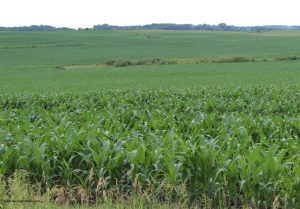A study published in the journal Nature has found that climate change is making our food less nutritious. Legumes, corn, wheat and rice are primary sources of zinc and iron. When those crops are grown under field conditions at CO2 concentrations predicted for the middle of this century, about 40 years away, they have significantly lower concentrations of zinc and iron, two essential nutrients.
 Scientists say these deficiencies will cause a loss of 63 million life-years annually across the globe. Life-years are a measure of disease burden, expressing the years lost to illness, disability, and early death.
Scientists say these deficiencies will cause a loss of 63 million life-years annually across the globe. Life-years are a measure of disease burden, expressing the years lost to illness, disability, and early death.
Dr. Samuel Myers, lead author of the study said, “rising concentrations of carbon dioxide in the atmosphere are threatening global human nutrition by reducing the amounts of very important nutrients for human health in important food crops like rice, wheat, and soy beans. There are roughly 2 billion people around the world who suffer from these deficiencies, and ultimately zinc deficiency affects our immune functions. So, much of the burden of disease is calculated through early child mortality from infectious diseases like malaria and diarrhea, pneumonia, measles. For iron deficiency, we see anemia, but we also see sharp increases in maternal mortality, loss of IQ, reduced work productivity.”
The study ran trails of six crops at sites in the U.S., Japan, and Australia. The crops were grown in an adapted open field. Levels of CO2 are predicted to be at 550 ppm; they are currently at 400 points per million. More CO2 makes plants grow more quickly. That decreases the nutrients in the plants because they are less likely to form nutrients as they grow.
The scientists say that we need to develop new varieties and alternative staple foods for those in the developing world. Dr. Glenn Fitzgerald, co-author of the study said, “if we target, more specifically, trying to increase the protein concentration in the micronutrients through breeding, then perhaps we can counteract some of those negative impacts that are occurring due to CO2.” For instance, plants that take in more carbon will still have a reduction in protein and micronutrients, but that different won’t be as severe.




